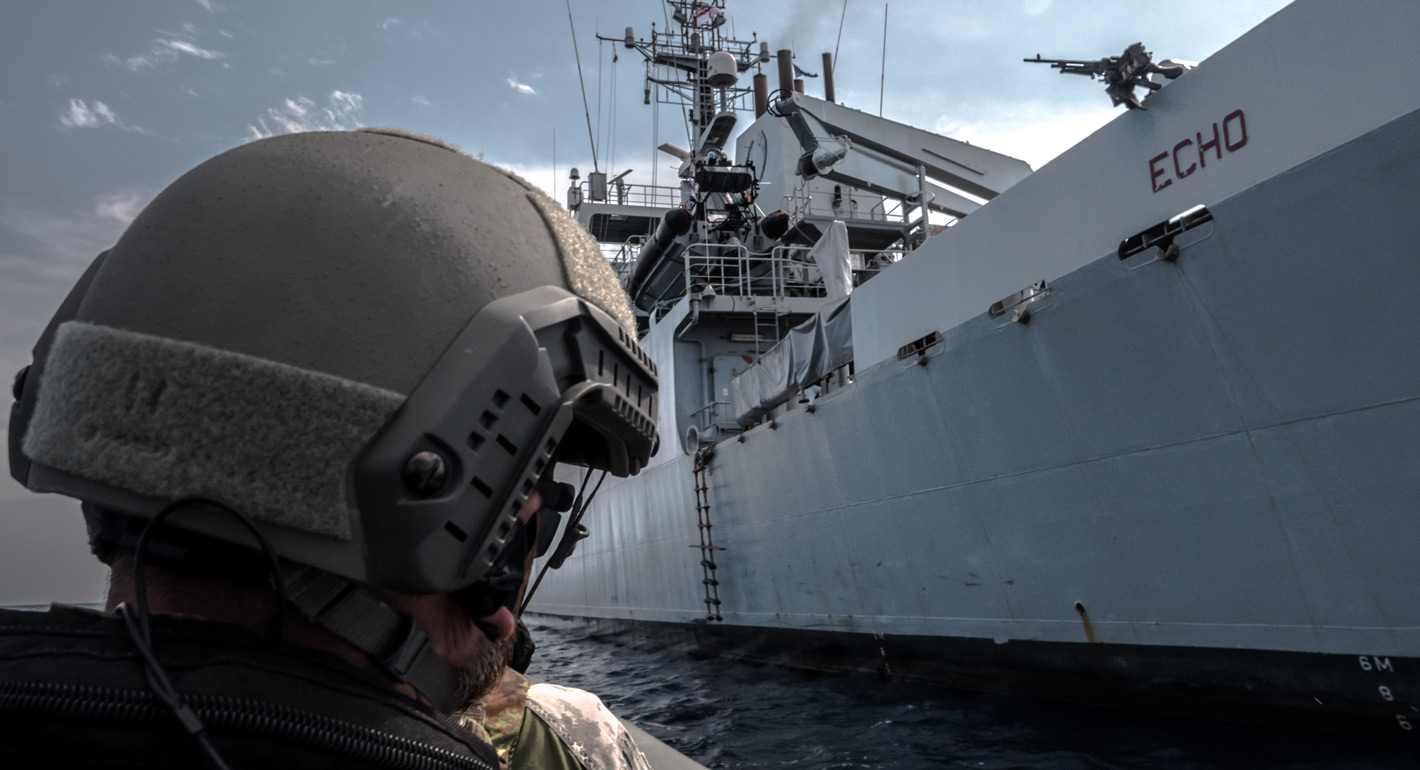Source: NATO Defense College
EU-NATO maritime cooperation is essential to a coordinated response to a variety of Mediterranean issues, including terrorist threats, the protracted conflicts in the Middle East and North Africa (MENA), and the refugee emergency. The EU’s Operation EUNAVFOR Med Sophia is deployed in the Southern-Central Mediterranean, whilst NATO’s Operation Sea Guardian operates in the whole Mediterranean basin. NATO also launched a new activity in the Aegean in 2016. Although each operation has its own mandate, their coordination was defined as crucial in the 2016 Joint Declaration on EU-NATO cooperation.
At a tactical level, these operations have by and large been successful in enhancing situational awareness in the Mediterranean; monitoring migration networks; constraining the activity of human and arms smugglers on the high seas; and to a degree in providing assistance to migrants. However, they also face strategic challenges, including the failure to dismantle the smugglers’ networks, their relatively low deterrent effect, and a limited degree of inter-institutional cooperation.
This article was originally appeared in the NATO Defense College Policy Brief series.
Photo: Jake Tupman; NATO via Flickr






